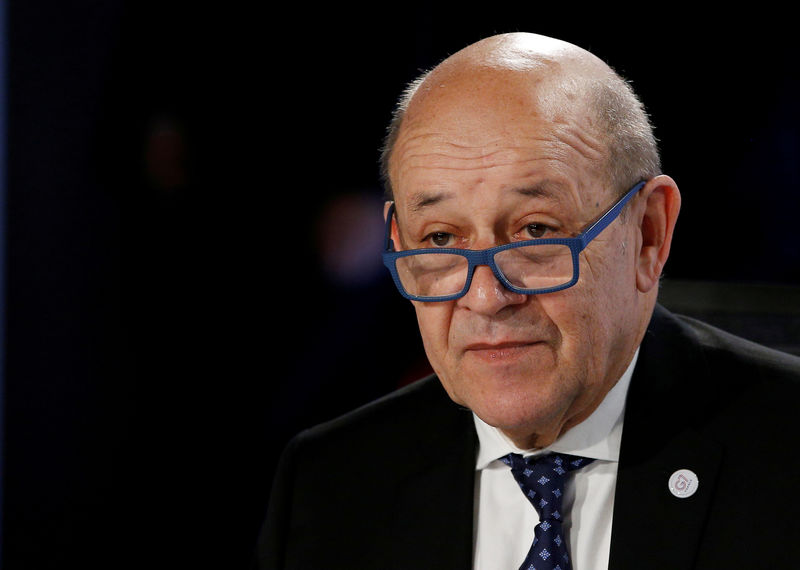PARIS (Reuters) - Iran's breaching of caps on its uranium enrichment after the United States pulled out of world powers' nuclear deal with Tehran was "a bad reaction to ... (a) bad decision", raising fears of a stumble into war, France's foreign minister said.
Tensions have risen as Washington has blamed Iran for several attacks on oil tankers and Tehran shot down a U.S. surveillance drone, prompting President Donald Trump to order air strikes that he called off only minutes before impact.
Trump withdrew the United States last year from the 2015 deal between Iran and world powers to curb its nuclear programme, to the dismay of co-signatories France, Britain, Germany, Russia and China.
Washington has since tightened sanctions to block Iran's oil exports and other benefits accruing from the deal. Tehran has responded by enriching uranium beyond set limits and threatening to restart deactivated centrifuges and ramp up enrichment well above the level deemed normal for electricity generation.
"The situation is serious. The rise of tensions could lead to accidents," French Foreign Minister Jean-Yves Le Drian told reporters when asked about the risk of a wider Middle East war.
"The fact Iran has decided to pull back from some of its engagements on nuclear proliferation is an additional worry. It is a bad decision, a bad reaction to another bad decision, that of the U.S. withdrawal from the nuclear deal a year ago," he said, arriving for Paris's annual Bastille Day military parade.
The European powers do not support Trump's sanctions squeeze on Iran, aimed at forcing it into negotiations on stricter nuclear limits and other security concessions, but have been unable to come up with ways to allow Iran to avert them.
"No one wants a war. I've noticed that everyone is saying they don't want to go to the summit of the escalation. Neither (Iranian) President Rouhani, nor President Trump or other Gulf leaders. But here there are elements of escalation that are worrisome," Le Drian said.
"Iran gains nothing from withdrawing from its engagement (with nuclear deal). The U.S. also gains nothing if Iran gets nuclear weapons, so it is important that de-escalation measures are taken to ease the tensions."

In Baghdad on Saturday, European Union foreign policy chief Federica Mogherini backed Iraq's proposal for a conference between Iran and its regional rivals, U.S.-allied Gulf states like Saudi Arabia and the United Arab Emirates.